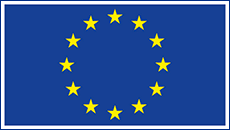Today, for already 14th time, the anniversary of the International Day Against Corruption is marked on 9 December
The Armenian Lawyers’ Association and the Armenian CSO Anti-Corruption Coalition organized an anti-corruption event dedicated to the International Anti-Corruption Day in the scope of the EU funded “Commitment to Constructive Dialogue” project.
The programs and recommendations on the 4 target areas (Education, Health, State Revenue Collection and Police) of the RA Anti-Corruption Strategy 2015-2018, were discussed at the event.
“The Anti-Corruption Council has already approved the Anti-Corruption Action Plan and this will be the last public discussion, and after summarizing the results, the entire package of proposals will be submitted to the Government for approval,” Mr. Karen Zadoyan, the President of the Armenian Lawyers’ Association and the Coordinator of the Secretariat of the CSO Anti-Corruption Coalition of Armenia said.
Mr. Tevan Poghosyan, Chairman of the Governing Board of Armenian CSO Ant-Corruption Coalition noted that the civil society should form the environment in which the government will begin to be guided by public interest. “Unfortunately, most of the initiatives are now issuing from the private interest. For example, someone comes and says, I want to build a hospital with the best equipment with so much money, and it is possible that something will move from place. But it is also based on the private interests. But shall we gain something from that step. Do we need such a hospital here?” Tevan Poghosyan said.
Deputy Health Minister Sergey Khachatryan, who was present at the discussion of the anti-corruption program on health sector said Sergey Khachatryan said that the desire of the society and the state is important for the solution of the problems, “If there is no desire both for society and for the government to solve problems, it will not be possible to give solutions,” he said.
Mr. Gevorg Grigoryan, President of the “Armenian Association of Young Doctors” NGO presented that there are several major risks in the health sector, “Conditions for medical care are human resource policy, technical equipment. Also there are problems regarding the treatment process and proper management of medical care,” he said․
The second discussion was about the existing problems in the field of state revenue collection and their solutions. The CSO Anti-Corruption Coalition of Armenia has submitted an Anti-Corruption Action Plan to SRC. Mr. Karen Zadoyan said this and stressed that the proposals were mostly accepted by the SRC.
Mr. Armen Sakapetoyan, the Deputy Chairman of the RA State Revenue Committee, who was present at the discussion of the anti-corruption program in the field of state revenue collection, mentioned that over the past one and a half years, a number of programs have been implemented; as a result corruption cases have decreased significantly. He also underlined the fact of reduction of about 500 job places in the system in the past year. “We consider CSO participation in such discussions and in the fight against corruption very important, particularly within the framework of SRC, because it performs two main functions: tax and customs service areas, which are related to society, businessmen and even tourists,” Mr. A. Sakapetoyan said.
Miss Syuzanna Soghomonyan, member of the independent experts of the expert center adjunct to the Anti-Corruption Council of the RA presented a few important points from recommendations introduced to SRC, such as improving the knowledge and skills of tax and customs officers in the field of anti-corruption and integrity, the process of implementation of digitalization of tax documentation, as well as the introduction of an automatic reporting system on their basis, in the case of certain controlled products, the requirement of submission of an expertise and so on.
During the discussion of the anti-corruption program in the sphere of education, Mr. Davit Sahakyan Deputy Minister of Education of the Republic of Armenia mentioned that the fight against corruption is a large-scale problem. “It’s not just about including some disciplines in the educational process or in the law, but changes in mentoring and mentality. I think that corruption in the education system is simply unacceptable,” the Deputy Minister said.
“Anticorruption education is very important because the younger generation must obtain a new world-view based on important, spiritual and anti-corruption values as our country has no alternative to making those values its own,” Mr. Zadoyan said.
Mr. Marat Atovmyan, member of the independent experts of the expert center adjunct to the Anti-Corruption Council of the RA mentioned that legal acts were analyzed; various meetings and interviews were held with field experts, teachers and representatives of the Ministry of Education and Science for a comprehensive overview of the problems in the field. Study of international experience in various issues has also been carried out.
During the discussion of the anti-corruption program of the Police sector, Mr. Vardan Yeghiazaryan, Deputy Head of the RA Police mentioned that the main issues raised during the surveys were traffic police issues, issues of personnel, as well as those related to passport and visa services, and so on.
Ms Anna Margaryan, member of the independent experts of the expert center adjunct to the Anti-Corruption Council of the RA mentioned that the police sector was chosen as a target not for the reason that the level of corruption here is higher than in other spheres, but based on the fact of daily contacts with the police by the police.
From the point of view of systemic risks, she highlighted issues related to the procedure for providing the driver’s license and lack of qualified personnel.
The “Commitment to Constructive Dialogue” Project is implemented with the financial support of the European Union by the “Armenian Lawyers’ Association” NGO in cooperation with its partners; Agora Central Europe o.p.s (an NGO from the Czech Republic), Armenian Center for Democratic Education-CIVITAS, “International Center for Human Development” Public Organization, SME Cooperation Association and Union of Communities of Armenia.


